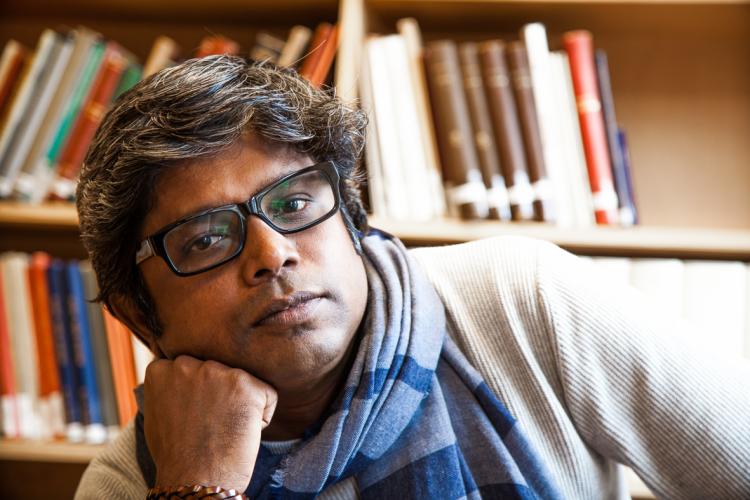Tutul receives Norwegian PEN’s Ossietzky prize 2018
As his home country Bangladesh is moving more and more in the direction of a religious and conservative society, despite threats and persecution, Tutul has insisted on defending freedom of expression through publishing books and articles that could cost his own life. After a brutal attack by fundamentalists at his publishing office in Dhaka in 2016, he swore he would never give up his fight. Today he publishes the online magazine Shuddhashar from his refuge in Norway and has many readers worldwide.
- The first time I gained consciousness in the hospital after being brutally injured, I said I would not stop, I'll continue my work.
Like his publishing house in Dhaka, Tutul likes to think of Shuddhashar online as a medium or platform to share thoughts, experiences, discussions, and critiques about literature, politics, rights, cultural diversity, and freethinking from a wide angle. He recently published the ninth edition of Shuddhashar, with a diversity of voices contributing to the magazine, both in English and Bangla. It embraces a broad range of topics from the perspective of writers, artists, journalists worldwide, as well as from actors of civil society organisations and institutions.
A space for free thought, inspiration and discussion
Tutul started Shuddhashar online in 2017 as the opportunity to work and publish magazines and books in Bangladesh is no longer open to him. He was attacked for his work and he lost his home and office. He lost his established business, and he had to leave Bangladesh quickly in a financially unstable situation.
- I had to choose a refugee life, Tutul says, leaving behind my loved ones and my homeland. The first time I gained consciousness in the hospital after being brutally injured, I said I would not stop, I'll continue my work. But I did not receive any kind of support at all from the government and the police, and because my life was still in danger, I was forced to leave my country with my family.
Tutul came to Skien in Norway through the ICORN programme in the winter of 2016 and has since continued to work on publishing and reaching out to both old and new audience. He says:
- You know, writing, editing, and publishing are my biggest passions. Even after becoming exiled, I looked for ways to continue my work. I dream of a liberal, non-communal, equal rights-based democratic Bangladesh and world. That is why I'm committed to human rights and freedom of speech. That is why I've started to publish the online magazine. Shuddhashar’s effort is to stimulate people's thinking about issues concerning politics, religion, philosophy, science, and literature – to urge people to carefully consider different perspectives and arguments, and to think critically about these issues. We want to free people from blind faith and prejudice.
They invite established and new writers; attacked, threatened and exiled writers, as well as academics and journalists to write for Shuddhashar. They invite also artists and cartoonists to write their art-based story. People who are not regular writers have contributed with pieces that reflect on their unique experiences. They look for people who have new ideas and perspectives and who can inspire the readers.
- We want to reach exiled and at-risk writers and human rights activists, including scholars, journalists, and artists, says Tutul. We want to exchange our best ideas for addressing societal ills. Additionally, by creating a community of thinkers and writers, Shuddhashar wants to support exiled writers and artists in adjusting to their new host communities. We see this as an urgent need. We have connections with former and current ICORN writers and can assist especially with building a supportive community and sharing strategies for meaningful integration. Shuddhashar will continue to solicit articles from ICORN writers on the situations they fled as well as on challenges and opportunities for purposeful integration in their host country. We believe these articles will be especially helpful for ICORN writers, coordinators, and politicians alike. We hope to work more closely with ICORN on these initiatives.
But, says Tutul:
- I actually don't want to reach a certain destination and stop. I think of my work as a universal movement that is larger than me. The form might change over time, the perspective and circumstances might change, but the movement will still be there. Some people will still continue this work. But anyone can learn lessons from discussion and can find solutions to a problem.
Latest news
-
23.04.24
-
18.04.24
-
04.04.24
-
26.03.24
-
21.03.24







